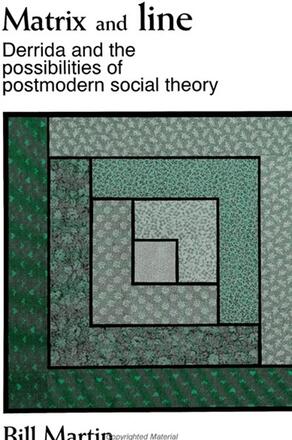
Matrix and line
Derrida and the possibilities of postmodern social theory
Alternative formats available from:
Description
A comprehensive attempt to assess the politics of deconstruction and the deconstruction of modernist politics.
Bill Martin is Assistant Professor of Philosophy at DePaul University.
Reviews
"Bill Martin's Matrix and line is the most comprehensive and exciting of a number of recent North American attempts to assess the politics of deconstruction and the deconstruction of modernist politics. It shows how the question of the other, the marginal and the excluded are decisive for an emerging form of political thought and practice. A confrontation between Jacques Derrida's and Jurgen Habermas's philosophies of language sets the stage for a number of scenarios that lucidly articulate the possibility of a radical diversity of voices and a community without a constricting sense of unity." — Gary Shapiro, University of Richmond
"This book is an elegantly written, patiently argued, and intelligently conceived contribution to the philosophies of the new social movements—a study which makes important interventions into the fields of continental philosophy, postmodernism, social theory, feminism, literary criticism, and analytic philosophy." — Diana Fuss, Princeton University
"Bill Martin has written a book—perhaps the first since Lyotard's own Postmodern Condition— to show that postmodernism is something more than yet another license for creatively misreading texts. Martin imparts to philosophizing a new sense of political urgency, while at the same time, his commentary on the geopolitical scene evinces a philosophical perspicacity that compares favorably with the 'new communitarianism' of Roberto Unger or Mouffe and Laclau." — Steve Fuller, Executive Editor, Social Epistemology